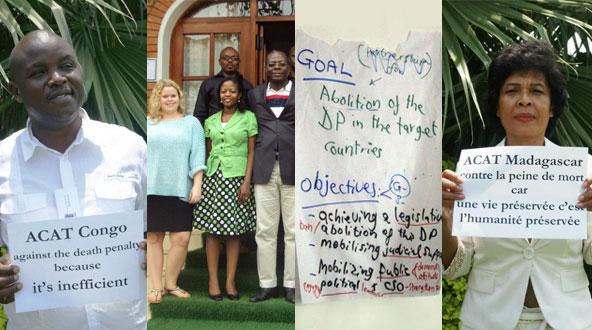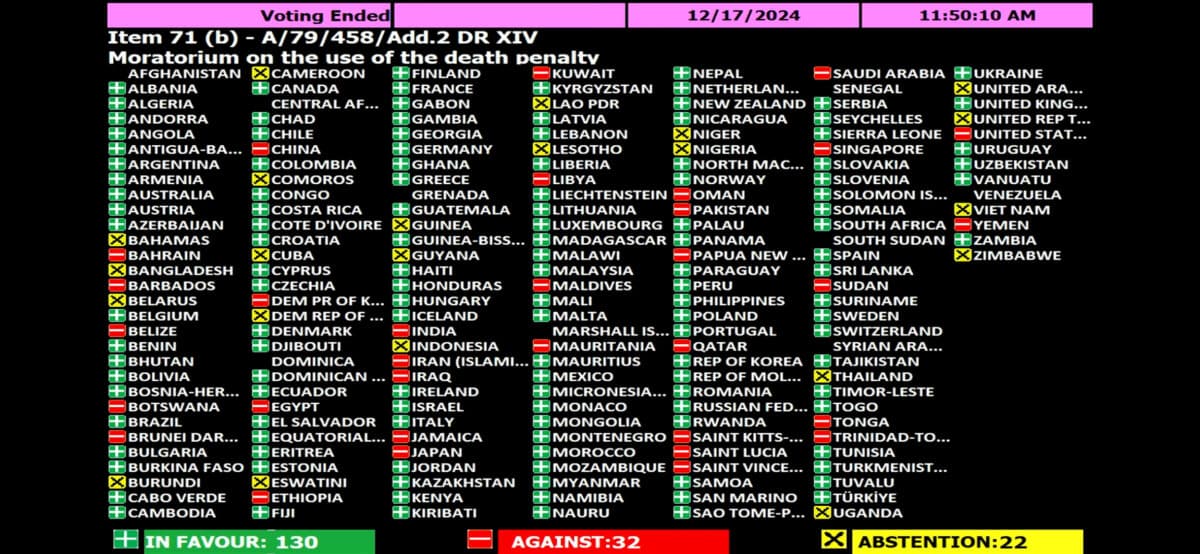
Central and Eastern African activists brainstorm for abolition
Africa
Two World Coalition member organisations, the International Federation of Action by Christians Against Torture (FIACAT) and the Foundation for Human Rights Initiative (FHRI), held strategic planning meetings in East Africa between 11-13 February 2013.
In Bujumbura, FIACAT’s chairwoman Sylvie Bukhari-de Pontual opened the session by remarking that “it is becoming hard to justify death penalty as human dignity is inviolable and indivisible and cannot be subjected to any contingency nor to any compromise: it is universal”.
The regional seminar, which was funded by Germany’s and Luxembourg’s foreign ministries, brought together representatives of the seven ACATs from Central Africa and Madagascar (Burundi, Cameroon, Congo, Madagascar, Central African Republic, Democratic Republic of the Congo, Chad).
It followed after a similar event in West Africa last year.
Prof Carlson Anyangwe’s, a member of the African Commission on Human and Peoples’ Rights (ACHPR)’s working group on the death penalty, came to share his expertise with the participants to the seminar.
The members of the region’s ACATs are now trained to undertake advocacy in their countries with support from FIACAT, in favour of:
– the abolition of the death penalty in Africa;
– the ratification of the second Optional Protocol to the International Covenant on Civil and Political Rights;
– the adoption of the resolution calling for a universal moratorium on executions, which the UN General Assembly will vote on in December 2014.
Litigation and radio shows
Meanwhile, in Kampala, 15 activists from Kenya, Tanzania, Rwanda, Democratic Republic of Congo and Uganda gathered around FHRI staff with support from Penal Reform International and the European Union.
The participants shared their experience on successful modes of action to advocate abolition in their respective countries. “Generally the following practices have been working: litigation of cases that challenge the application of the death penalty, media campaigns mainly through radio talk shows, and capacity building,” FHRI reported.
East African activists also agreed that the main challenge to abolition in the region remains insufficient support from public opinion, which in turn hinders political will to end the death penalty. “This is worsened by the heinous murders committed within the region, e.g. albino murders in Tanzania and an increase in child sacrifice cases in Uganda,” FHRI remarked.
The participants retained six objectives to organise their action: “work towards legislative abolition of the death penalty, gaining judicial support, mobilise public support, engage political leaders on death penalty issues, promote the adoption of humane alternatives to the death penalty and partner with like-minded organizations”.
New publication on regional data and strategies
The participants to the Kampala meeting form part of the East and Central African Coalition Against the Death Penalty, which began its existence at a regional conference on abolition in Kinshasa in March 2012.
Two World Coalition member organizations, Together Against the Death Penalty and (France) and Culture for Peace and Justice (DR Congo) organized the event and have just published its proceedings. The publication includes papers from the ministers, ambassadors, academics, parliamentarians, human rights activists and the former death row inmate who spoke at the conference. It also features country-by-contry information on the state of the death penalty and local abolitionist organisations.
Categories
Moratorium






